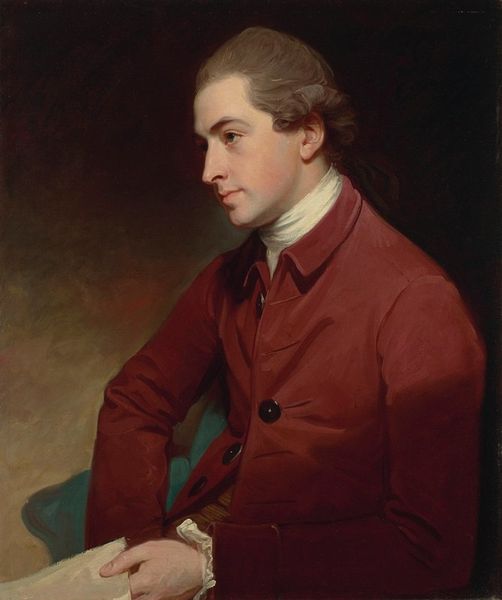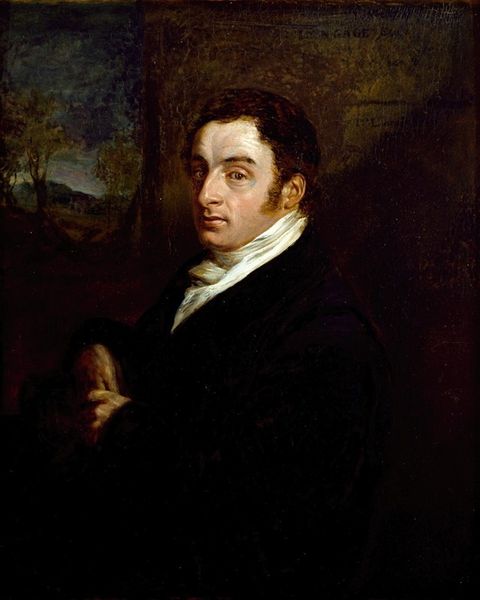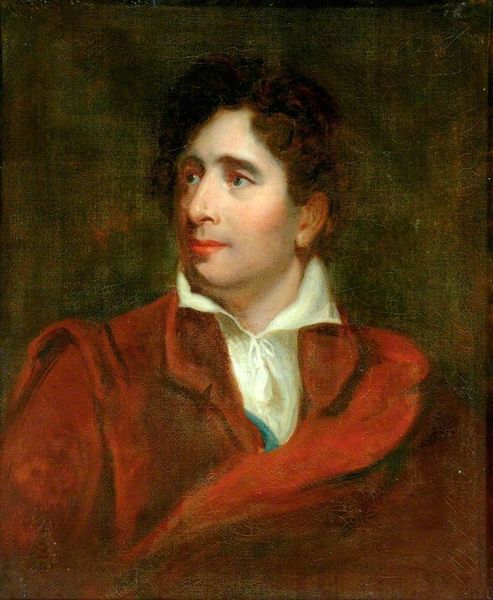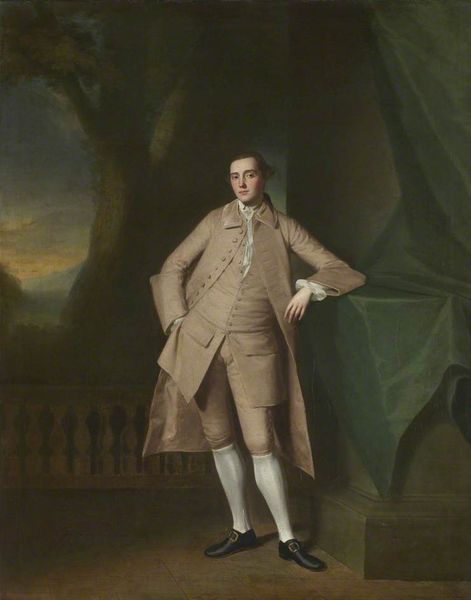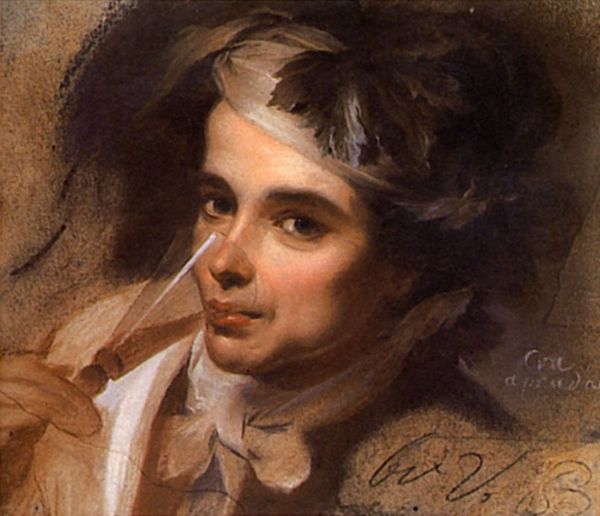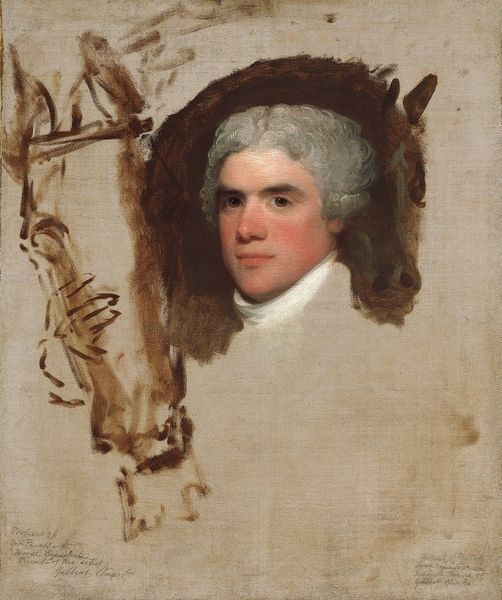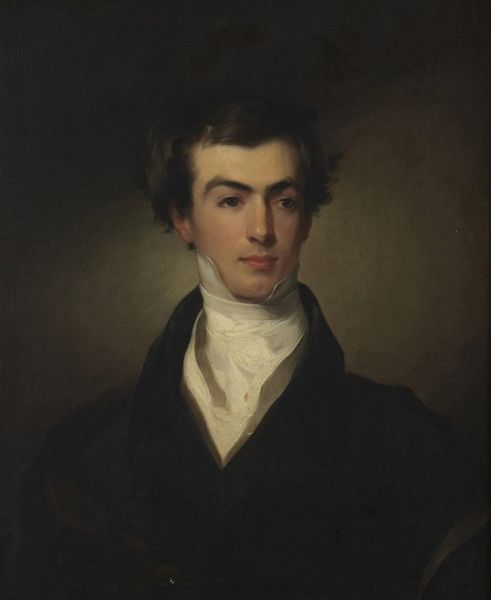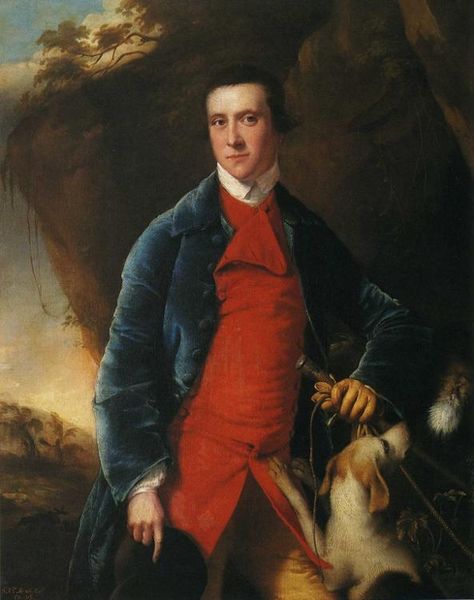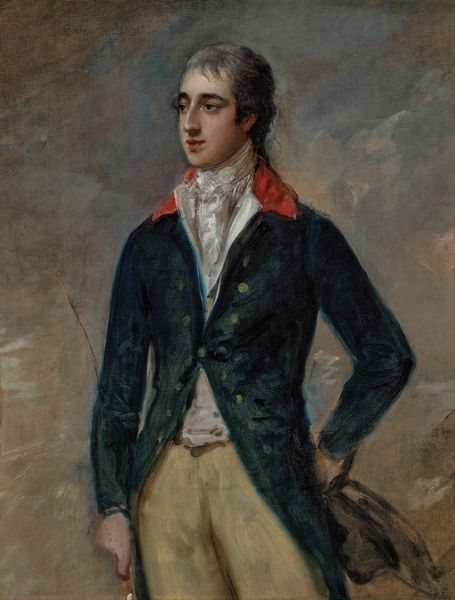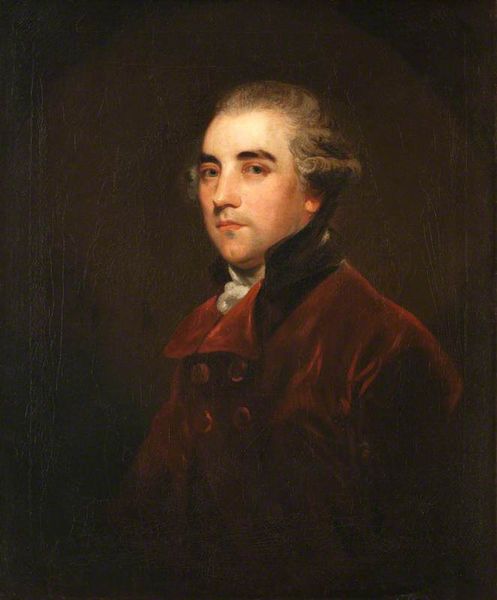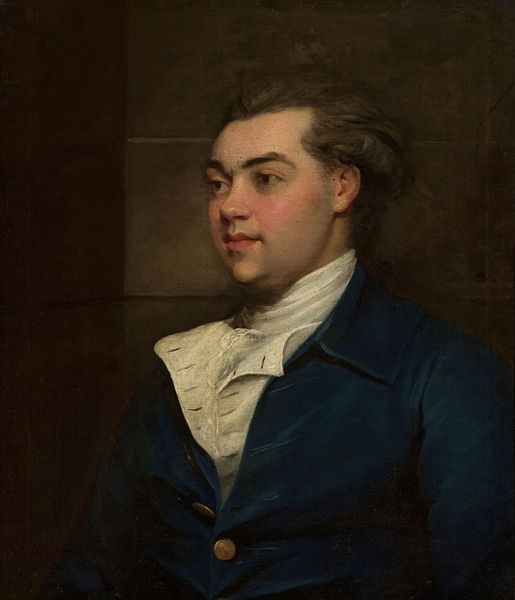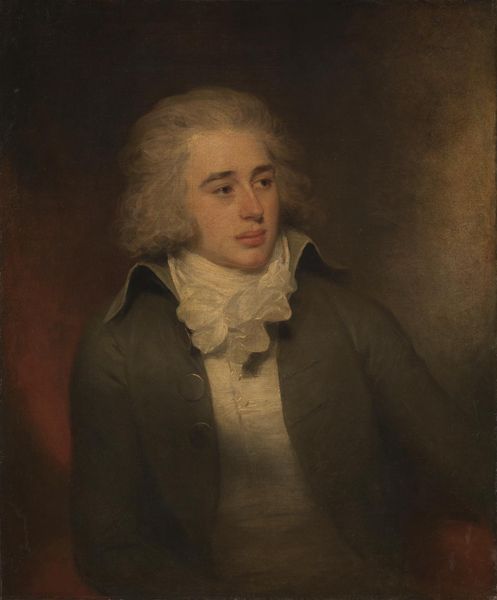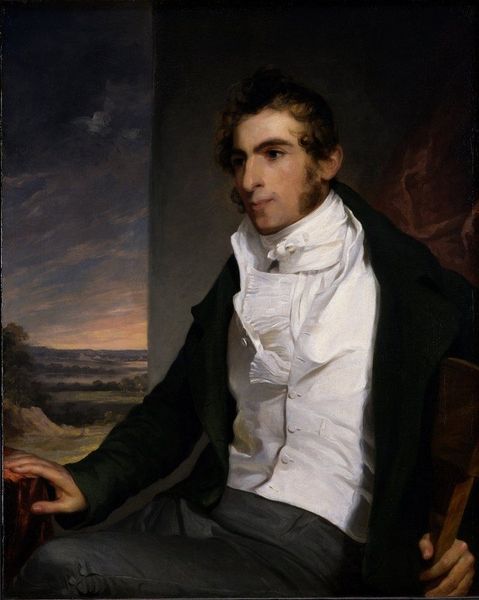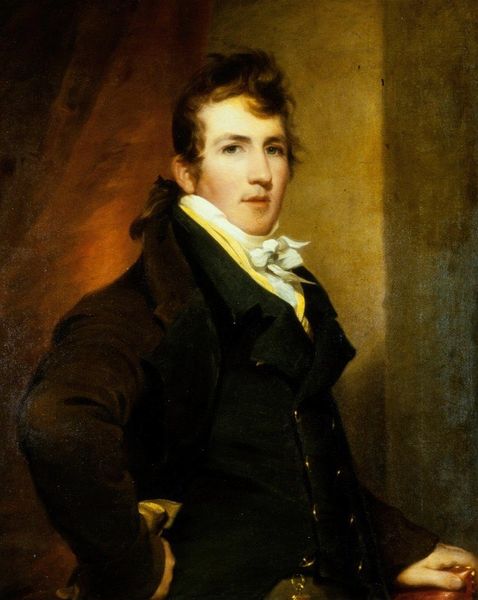
painting, oil-paint
#
portrait
#
painting
#
oil-paint
#
landscape
#
romanticism
Copyright: Public domain
Thomas Lawrence captured the likeness of George Gordon Noel, Lord Byron, in this vivid portrait. Byron’s gaze, averted to the side, speaks of introspection and a melancholy mood. The stormy landscape behind him serves not just as backdrop but as a mirror to his passionate, tumultuous soul, a common trope from Romanticism. This "pathetic fallacy"—the mirroring of inner emotional states in the natural world—echoes through art history. Consider the tempestuous seas in ancient Greek poetry, or the wild, untamed landscapes favored by German Romantic painters. Byron, the brooding hero, becomes one with the turbulent forces of nature. The very act of turning away, seen in countless portraits throughout history, implies a depth of thought, a resistance to the direct gaze. It’s a pose that engages us, inviting speculation and drawing us into the inner world of the sitter. This, in turn, elicits a profound emotional response, connecting us to primal, shared human experiences. The image of a pensive figure amidst a storm is eternally reborn, each time colored by a new context, yet resonant with enduring truths about the human condition.
Comments
No comments
Be the first to comment and join the conversation on the ultimate creative platform.
